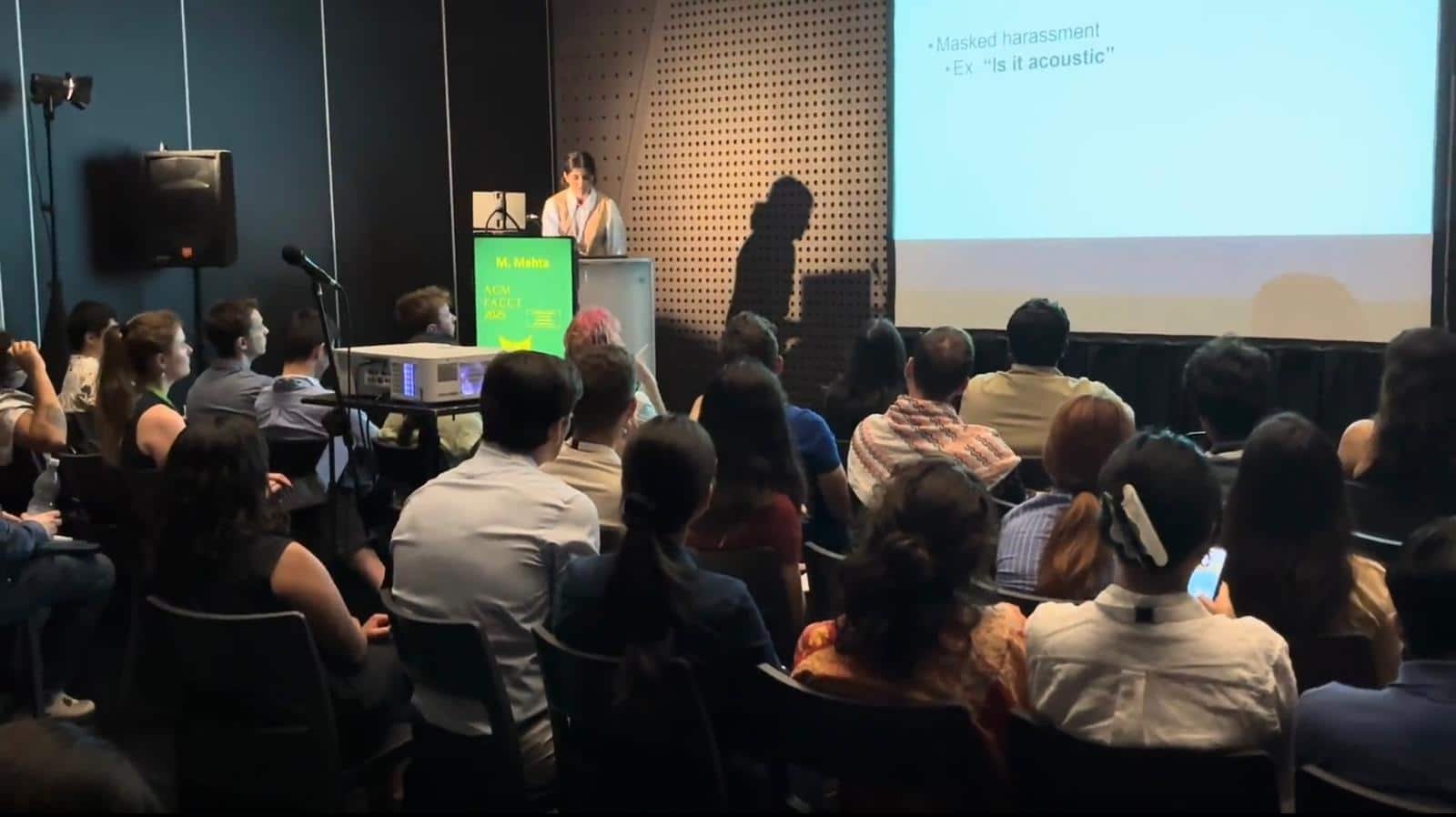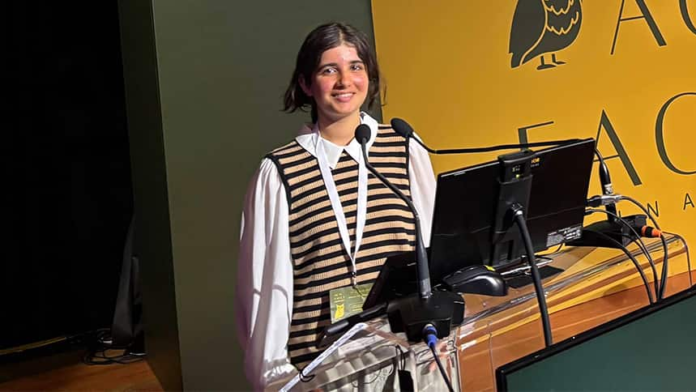Gen alpha slang may be bypassing AI moderators
⭐️HERE’S WHAT YOU NEED TO KNOW⭐️
- A 14-year-old who researched AI and Gen Alpha slang was invited to present her findings at an international academic conference this summer.
- She found that AI models understood these slang expressions about 40 to 70 per cent of the time.
- This means AI moderators might miss certain instances of online harassment.
- Read on to find out how she presented these findings in Greece. ⬇️⬇️⬇️
Rizz. Sus. Sigma. Aura. No cap.
As Generation Alpha’s list of slang words gets longer and longer, it gets harder and harder for their parents and teachers to understand what they’re saying.
But does AI understand the youngest generation of internet users? According to one 14-year-old, not always.
In June, Manisha Mehta presented the findings of a study she conducted at an AI conference in Athens, Greece.
The study looked at how well AI moderation tools understand slang expressions used by Gen Alpha — kids born between 2010 and 2024.
Her findings suggest that kids’ ever-growing, “secret” language may actually be putting them at risk in online spaces.
The spark behind the study
Manisha, who is from Cupertino, California, first got into AI through conversations with her dad, who is an AI researcher himself.
“I was always his sounding board. We would go on long walks and get into really deep chats about his newest research ideas,” she told CBC Kids News.
Manisha got interested in AI through her dad, who studies AI. (Image submitted by Manisha Mehta)
But when her dad would try to have chats with both Manisha and her twin brother at the same time, it was a different story.
Manisha said that, to her dad, she and her brother were practically speaking a different language with all the Gen Alpha slang they’d use.
“The communication barrier between us and our parents was fascinating. If we were being serious or silly on a topic, they wouldn’t always know the difference.”
She wanted to find out just how big the communication gap between Gen Alpha and the older generations had become.
Does AI understand Gen Alpha?
Manisha, with the help of her friends, came up with a list of 100 Gen Alpha words and phrases — like “ate that up”, ‘“hits different” and “in my flop era.”
She then put them into a survey and gave it to kids, parents, professional content moderators and an AI models to see how many terms each group would understand.
Gen Alphas consistently understood over 95 per cent of the terms.
“Parents, on the other hand, were respectfully hopeless,” she said.
The AI models, according to Manisha, understood around 35 to 65 per cent, depending on what was asked.

Manisha’s study suggests that AI moderators on apps like Instagram may be missing some instances of harassment that include Gen Alpha slang. (Image credit: Michel Aspirot/Radio-Canada)
She thinks this gap in understanding is because AI models are trained on language that becomes outdated soon after they’re released.
“But Gen Alpha slang is changing all the time,” she said. “Within weeks, new trends and words emerge online and older lingo dies out.”
Why that’s a problem
AI is now used heavily by social media platforms to monitor and moderate user behaviour, taking action when people bully, harass or threaten others.
But because AI isn’t able to understand a good chunk of Gen Alpha terms, Manisha realized it may be missing some instances of harassment.
“This could be an issue because the internet isn’t always a nice place,” said Manisha. “Terrible things can be said and disguised as something else.”
Manisha pointed to “KYS” as an example — an online acronym that means “kill yourself” but could be easily glossed over by those who aren’t familiar with it.
“If AI and our parents aren’t catching these things, who will?” she said.
Presenting in Greece
Fausto Giunchiglia, a professor of computer science at the University of Trento in Italy, was one of Manisha’s dad’s professors.
When he caught wind of Manisha’s research findings, he thought the wider scientific community should know about it, considering the serious safety concerns it raised.
“I thought it was very important research to get out immediately. The work, for her age, was outstanding,” he told CBC Kids News.

Manisha presented the findings of her study at a computer science conference in Athens, Greece, in June. (Image submitted by Manisha Mehta)
He helped Manisha apply to present her findings at the Association for Computing Machinery’s Conference on Fairness, Accountability and Transparency in Athens, Greece, in June.
Manisha was accepted. That’s no small feat, according to Giunchiglia — many applications from full-fledged, adult scientists are rejected each year.
Manisha said she was really nervous to present to a room full of top scientists, but was able to pull it together.
“It was overwhelmingly positive,” she said. “I feel so grateful, I had so many positive comments from people afterward.”
What’s next?
Manisha plans to dive even further into the research.
She also said she’s developing a web app to help parents better understand what their Gen Alpha kids are talking about.
Her message for other kids? Stay curious about AI.
“I think it’s good to stay informed however you can, because it’s about to become such a massive part of our world.”
Have more questions? Want to tell us how we’re doing? Use the “send us feedback” link below. ⬇️⬇️⬇️

